Sustaining nature - intersectionality in environmental justice
“The new economy must be built on life,” exclaimed Angele Alook in her book The End of this World: Climate Justice in So-Called Canada. Re-imagining the economic system where leaders are self-determined and focus on delivering care for the land is increasingly difficult in modern times but for Alook and the other panellists at Congress 2024’s Big Thinking: Sustaining Nature event, this issue is the imperative one of our time.
Joined by Dr. Ingrid Waldron of McMaster University and Dr. Sebastien Jodoin of McGill University, the discussion explored themes of what environmental justice and climate action means in the modern context and how their disciplines intersect with each other through class, race, disability, and other social barriers.
Some questions and answers have been edited and translated for greater clarity.
Environmental Racism in Canada
Dr. Waldron explained that climate change inequalities are ever-present in Canada and disproportionally affect not only Indigenous communities but Black communities as well.
“Environmental racism can be defined as racial discrimination in disproportionate locations and greater exposure of Indigenous people and racialized communities,” she said, “people don't often associate environmental racism with Black communities [...] there are a lot of cases of environmental racism in the African Nova Scotian communities.”
African communities such as Africville, Lincolnville, and Shelbourne in Nova Scotia have experienced the effects of environmental racism first-hand.
In the case of Africville, gentrification efforts in the 1960s displaced many members of the community and made way for environmentally hazardous industries such as coal production to increase. In Shelbourne, the historically African community in the south of the city has been exposed to landfill pollution since the 1940s with many residents attributing the community’s high rates of cancer to the landfill site.
“When we trace the climate crisis back to slavery and colonialism, it begins to be clear that […] the climate crisis is linked to a legacy of climate racism in [Indigenous and racialized communities],” said Dr. Waldron.
Indigenous Climate Justice
For the Indigenous community, climate justice and environmental stewardship are core beliefs for many cultural groups.
Alook invited the audience to envision a world where climate leadership centred around women and two-spirit leadership for “a future built on Indigenous knowledge with transformational shifts in how we think about work and economies,” she explained.
“A just transition should be for all, should be led by Indigenous understandings of economies and livelihood and life.”
Alook’s research is based on how to address the climate crisis using Indigenous knowledge systems, restoring Indigenous sovereignty, and uplifting the voices of Indigenous leaders.
She said, “When I interview people in my home community […] I often end the interview by asking people what are your hopes for the future. Two common responses: hope for Indigenous sovereignty and hopes for future generations.”
Disability & Climate Change
For Dr. Jodoin, the connections between disability and climate change are a result of the decisions that place people in vulnerable situations. He explained that folks with disabilities are often overlooked in these discussions about climate change.
“People with disabilities are automatically neglected in climate actions,” he said.
Often, even the most positive intentions for climate action reinforce disability barriers. He highlighted that recent efforts by the City of Montreal to develop bike paths blocked wheelchair access to sidewalks.
In his opinion, climate action and sustaining nature are inherently intersectional issues that must include race, class, and disability in all future discussions.
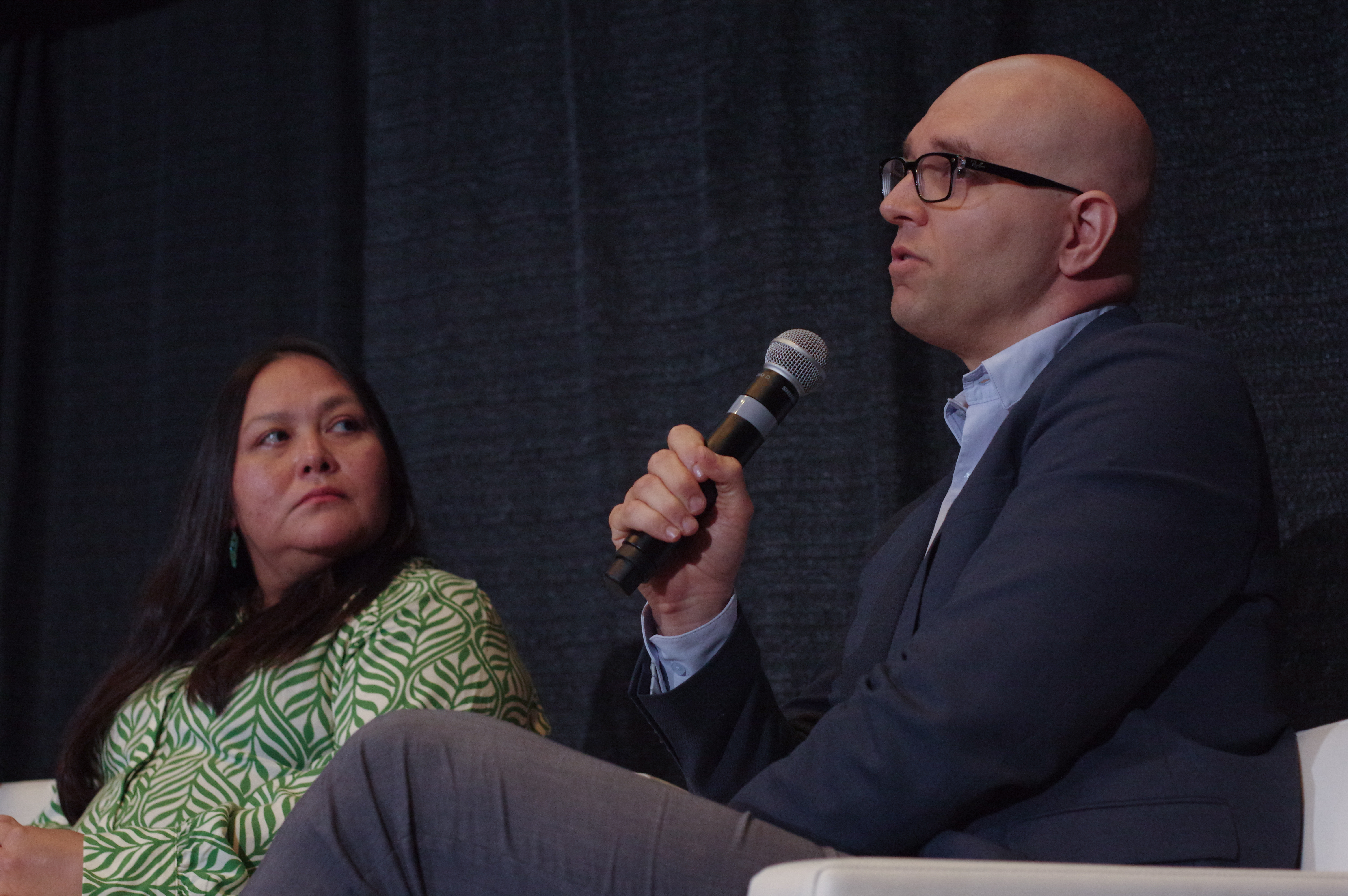
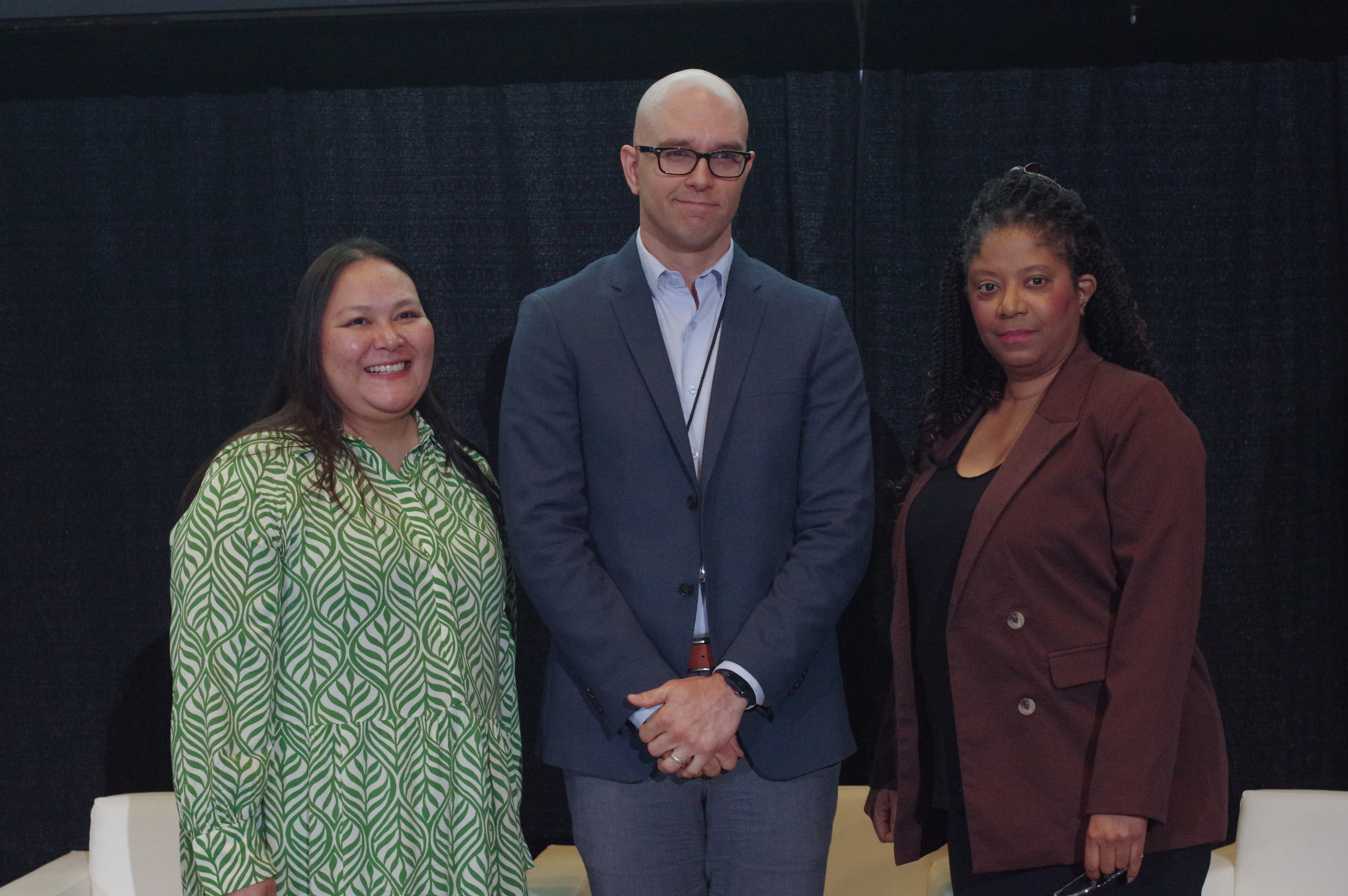
Q&A with Hélène Laurin, Marie-Pierre Gadoua, and Laurent Corbeil
We spoke with Drs Laurent Corbeil, Program Director, Fonds de recherche du Quebec, Hélène Laurin, Communications Strategist and Knowledge Mobilization, CRIEM (Centre de recherches interdisciplinaires en etudes montrealaises), and Marie-Pierre Gadoua, Cultural Action and Social Mediation Coordinator, Bibliotheque et Archives nationales du Quebec after the TRaCE Talks: PhD Career Pathways Beyond Academia panel at Congress 2024 to discuss their careers post-academia, challenges in the job market, and whether or not they would pursue graduate studies again.
Can you tell us about some obstacles you have encountered in the current job market after finishing your PhD?
Hélène Laurin: The feeling of being overqualified and employers' perception that we are overqualified.
Laurent Corbeil: Finding the right place to get the right jobs. Places like Jobboom or LinkedIn, you cannot really find the job you’re looking for there. Finding the right platform is hard. I think networking is a lot easier than trying a job online.
Marie-Pierre Gadoua: It’s about selling ourselves without an academic CV. It’s about how to translate your academic skills – and not just skills – but how to translate the academic CV and the skills around it into something that is the same language as your future employer.
Advice for undergraduates deciding between staying in academia or finding a job after undergrad?
HL: My number one advice is: do you have the fire in the belly? Because to pursue graduate studies, you really have to believe in it and you have to want it 100%. If you don’t go find a job. If you don’t, you can come back to academia, no problem!
MPG: In our domain, in social sciences and humanities, it’s not a job-oriented study like engineering, for example. You have to do it because you have to have a passion for your research – you don’t do it for a job or salary. With a PhD, you’re not going to have a higher salary than someone with a technical diploma from CEGEP at the same job. As I mentioned earlier, the language they speak and the scale of value are not the same as in academia, it’s two different worlds. You don’t do your PhD to have a jet-set life and a high salary.
LC: Do what you feel. If you feel guilty about leaving academia, it’s not a good reason to stay or leave, you need to do what you want to do. That’s number one for me.
If you had it to do over again, would you pursue a PhD?
HL: Yes! It has been my dream since I was 12. I loved school and I still love it. I knew this was where I wanted to be and I was very proud of myself.
MPD: Same for me. When I was doing my PhD and overwhelmed by everything, I would tell myself if I could get paid to do a second, a third, do them all my life, I would do that. I loved being in control, having my research questioned, going in-depth, and all that. Also, my PhD was very peer-work oriented – I was working with Indigenous people and it had an impact on them and I liked mixing my research interest with a need in the world.
LC: I would do it again. I thought it was so enriching intellectually speaking. I travelled for my PhD all over Latin America. It’s what I wanted to do – I wanted to study people learn about different cultures and live in different places. I went almost bankrupt doing it but I thought and still think it was worth it.
Bryan Alexander’s ‘solarpunk’ university
Academia has long had a role in educating and preparing future generations to face the world. From the humanities to STEM, the university institution is a place to learn, share, and impact society significantly. But in the modern context, we face a looming climate crisis that more imperils future generations than ever before.
Bryan Alexander’s talk on The several futures of higher education in the Anthropocene at the Federation for the Humanities and Social Sciences Congress 2024 explored the many roles and outcomes that our present and future academic context faces in the face of the climate crisis. Alexander, a renowned futurist educator and author confronted these existential questions head-on and asked us all to consider how academia will contend with its complicity in the climate crisis.
In the present moment
The climate crisis will need an academic flame, exclaimed Alexander but he was distraught that “most academics are not reacting at all to the climate crisis [...] academics say this is a political nightmare.”
Indeed, the political will to find solutions to the climate crisis is difficult to find in many academic corners but it’s not for lack of trying. Students, crucially, are the ones who are driving a ton of effort to increase climate change curricula, prepare for green jobs, and work with local institutions to push climate action forward.
Driven by a distinct “solastalgia” in the face of a “climate leviathan” as described by Alexander, students are on the front lines in the fight against the climate crisis.
For instance, the University of Barcelona will mandate a mandatory climate crisis module from 2024 onward as a criterion for graduation. This was driven by a combined student and faculty 7-day strike with the End Fossil group in Madrid and Barcelona.
“We need to rethink higher education radically,” said Alexander, “no one discipline owns the climate crisis. It is incredibly multi-disciplinary.”
The ‘Solarpunk’ university
While firmly in the realm of science-fiction, Alexander imagines a solution – a world of ‘solarpunk’ universities that are intimately connected to the natural world on a human scale.
‘Solarpunk’ is a literary and artistic movement that imagines a utopian future in which cities and the people living in them are in harmony with the natural world. In a ‘solarpunk’ future, we use renewable energy, are socially responsible, are decolonized, and integrate our technology and architecture into the natural landscape.
“We need to think solarpunk,” said Alexander, “and to imagine the solarpunk university as a possible way forward.”
Whether we develop ‘solarpunk’ universities or not, academics need to face these challenges and consider their impact on the climate crisis. By developing solutions that are more in harmony with the natural world and allowing climate education to flourish in all disciplines, we might just have a chance against the “climate leviathan” after all.
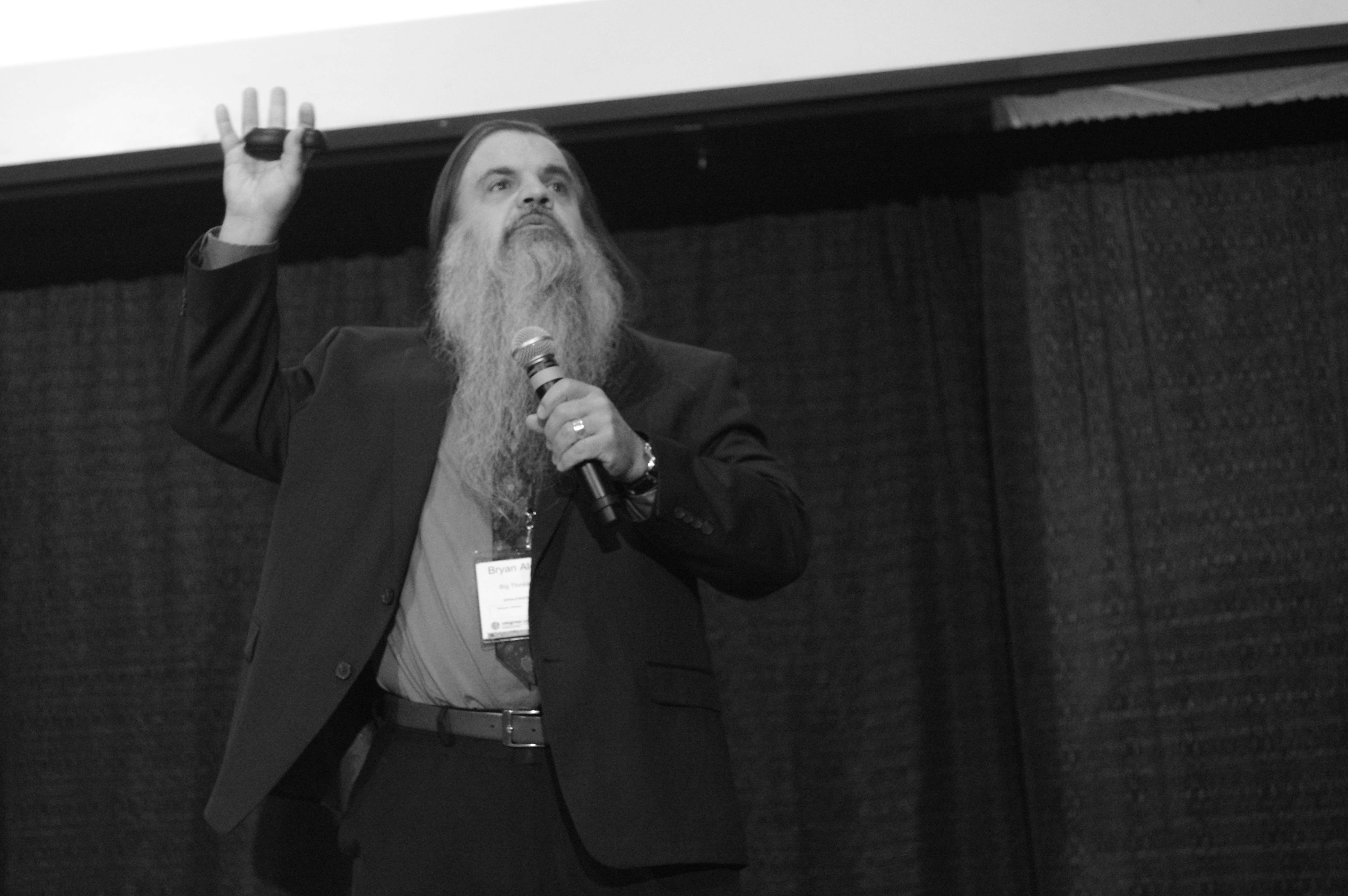
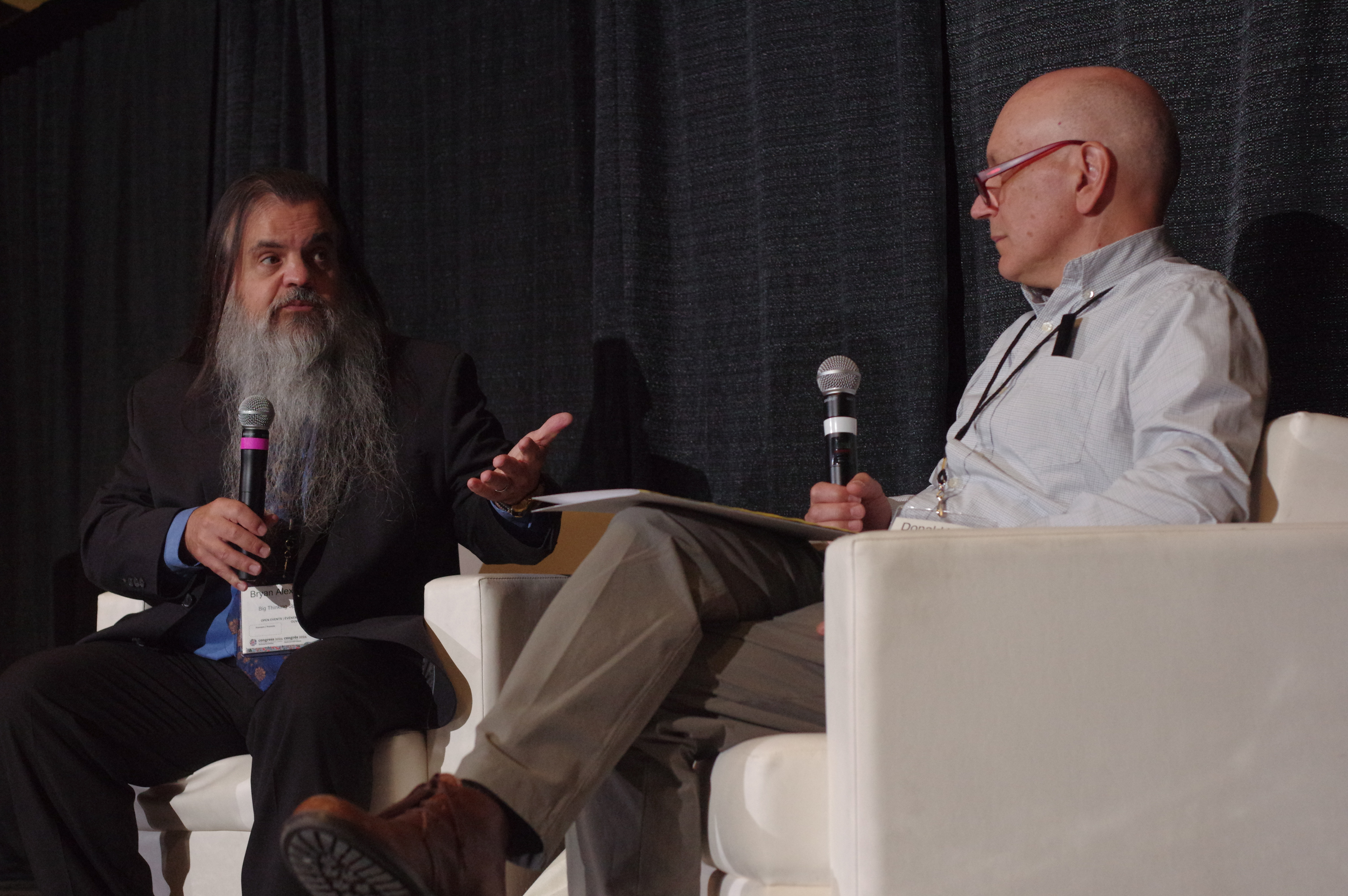
How to publish in University Affairs magazine
With over 100,000 unique online visitors per month and published 4 times per year, University Affairs Magazine is Canada’s premier resource for all things academia.
Focused on issues of academic freedom, institutional autonomy, equity and diversity, and the role of universities in the climate crisis, among others, University Affairs Magazine provides an in-depth academic lens to the most pressing issues that impact the wider community with broad implications.
UA publishes a variety of content from op-eds to research papers, advice columns for young academics entering the workforce, and even a podcast. Soon, the magazine is launching a book review section and a photo essay section.
If you have something to say that isn’t being said and if you have a pressing topic you need to explore in higher education, UA Magazine is the place to publish!
To submit an essay, op-ed, or research project to University Affairs Magazine, contact submissions@univcan.ca.
Subscribe to the UA newsletter to get the latest academic news from across Canada, and explore some of their featured positions below.
Featured positions in academia from the University Affairs job board
- Faculty Lecturer (français langue de la santé) – McGill University, Quebec
- Biomedical Toxicology - Lecturer – University of Saskatchewan, Saskatchewan
- Computer Science - Assistant Teaching Professor, 9-month Term – University of New Brunswick (Saint John), New Brunswick
- Vice-Provost and Dean, Yeates School of Graduate and Postdoctoral Studies – Toronto Metropolitan University, Ontario
- Directrice, directeur du Service des terrains, bâtiments et de l’équipement – Université du Québec à Rimouski (UQAR), Quebec
- Social Work - (2) Assistant Professors (1 in Regina and 1 in Saskatoon) – University of Regina, Saskatchewan
- Nursing - Senior Lab Instructor – University of Northern BC, BC
- Nursing - Assistant/Associate Professor – University of Northern BC, BC
- Northern Medical Program - Senior Instructor I, Full Time 1-year Term – University of Northern BC, BC
Explore more career opportunities on the University Affairs job board.
Sustaining political community - disinformation and the threat to political engagement
A vibrant, safe political community to share ideas, discussions, and debate is rapidly deteriorating in our modern context. In the face of a capitalist mass media, conflicts of values and cultures are not so easily bridged.
Political community, crucially, is at stake in the digital age where disinformation runs rampant and where curated news feeds exclude diverse voices from the democratic process according to the esteemed panelists Omarya Issa and Colette Brin at Congress 2024’s Big Thinking: Sustaining Political Community event.
Some questions and answers have been edited and translated for greater clarity.
Is political engagement threatened?
Omarya Issa: Yes, absolutely in this moment. In many ways, there is a certain dissociation from ‘place.’ A community is attached to a place and in the context of digital spaces, that is at stake. Democracy, the consensus of how societies organize themselves, is deeply at stake in the moment we live in. As we think about our democratic political movements, we’re seeing the wide rise of the far-right which in many ways, refutes facts. When we don’t have a consensus on facts, we don’t have a consensus on truth.
Colette Brim: I agree. Fundamentally, I see journalism as a vital function that permits a healthy democratic society to exist. I worry a lot about the decline of journalism. I think we’re in a transitional period where we have to conserve what is good about traditional journalism and integrate new realities. But we still live in a space that is still unequal and promotes disinformation. Journalism, even with its imperfections, was the space where we can talk about the facts and it’s becoming less and less.
What is your evaluation of social networks and their impact on democracy, media as a whole, and on people in general?
OM: Social media has given us an impression of democratization and access to political space – which is not the case. The idea that everybody can speak up and has the same level of access is in fact, not true. Not everybody has access to influence and power. We know that power is increasingly concentrated in certain demographics which makes it particularly dangerous in this moment we live in. In very many ways, social media platforms are fueling an aggression of speech. It’s a very complex media landscape that we live in. When Meta shut down access to information in Canada, it had a huge impact and continues to have an impact. So yes, people can organize on social media platforms but it’s also a space for political repression.
CB: The social media space itself is becoming more complex. We see that Facebook, for example, is losing audiences and that means that people are moving to other spaces. These platforms were essentially designed for entertainment and to make money. Now, we have Instagram and TikTok where young people are going increasingly so it becomes almost inevitable for news organizations and everyone involved in political debate to want to be in that space. We need to ask: what is the best use of this environment as a citizen, what does it mean to engage with the world in these spaces, and how do we do it? Because it's so chaotic and there is so much disinformation and hate.
How do you think we can prevent disinformation on these platforms?
CB: Speed is our enemy. Fact-checking is still incredibly useful but it has become a task that is so huge because of the speed of how disinformation can be produced. I don’t think journalists can do this job by themselves. Fact-checking is not a blanket solution, we need time. To make sense of things, we need time, we need multiple sources, and you’re not going to know all the information in 30 seconds, it’s impossible.
OM: Identification becomes fundamental [in the context of AI and machine learning]. It’s going to become important to identify what was created by a machine versus what was written by a human being. Couched with that is a certain level of accountability and transparency. I worry a lot about young people because I think they are not given the tools – I worry we are failing younger generations.
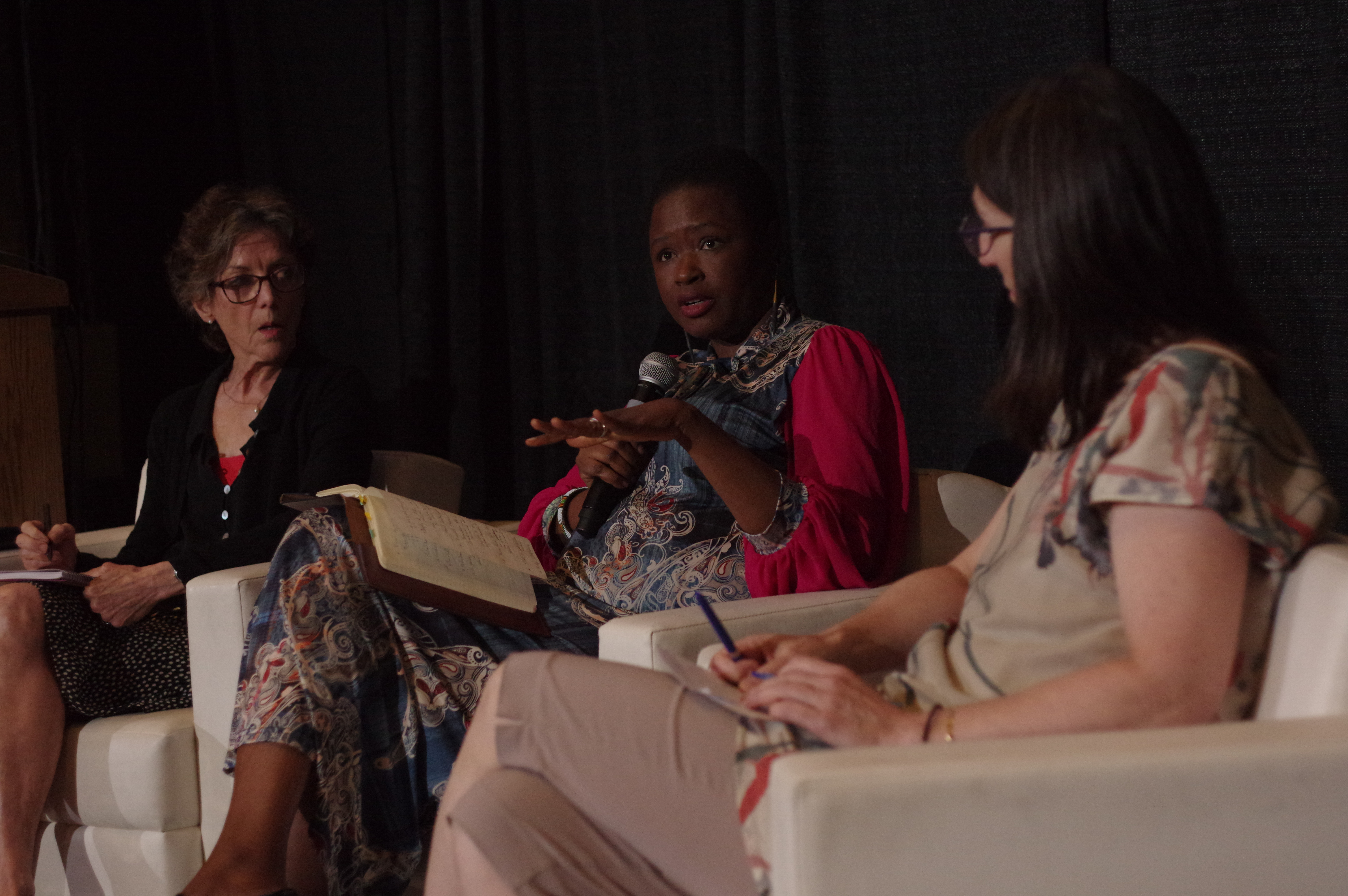
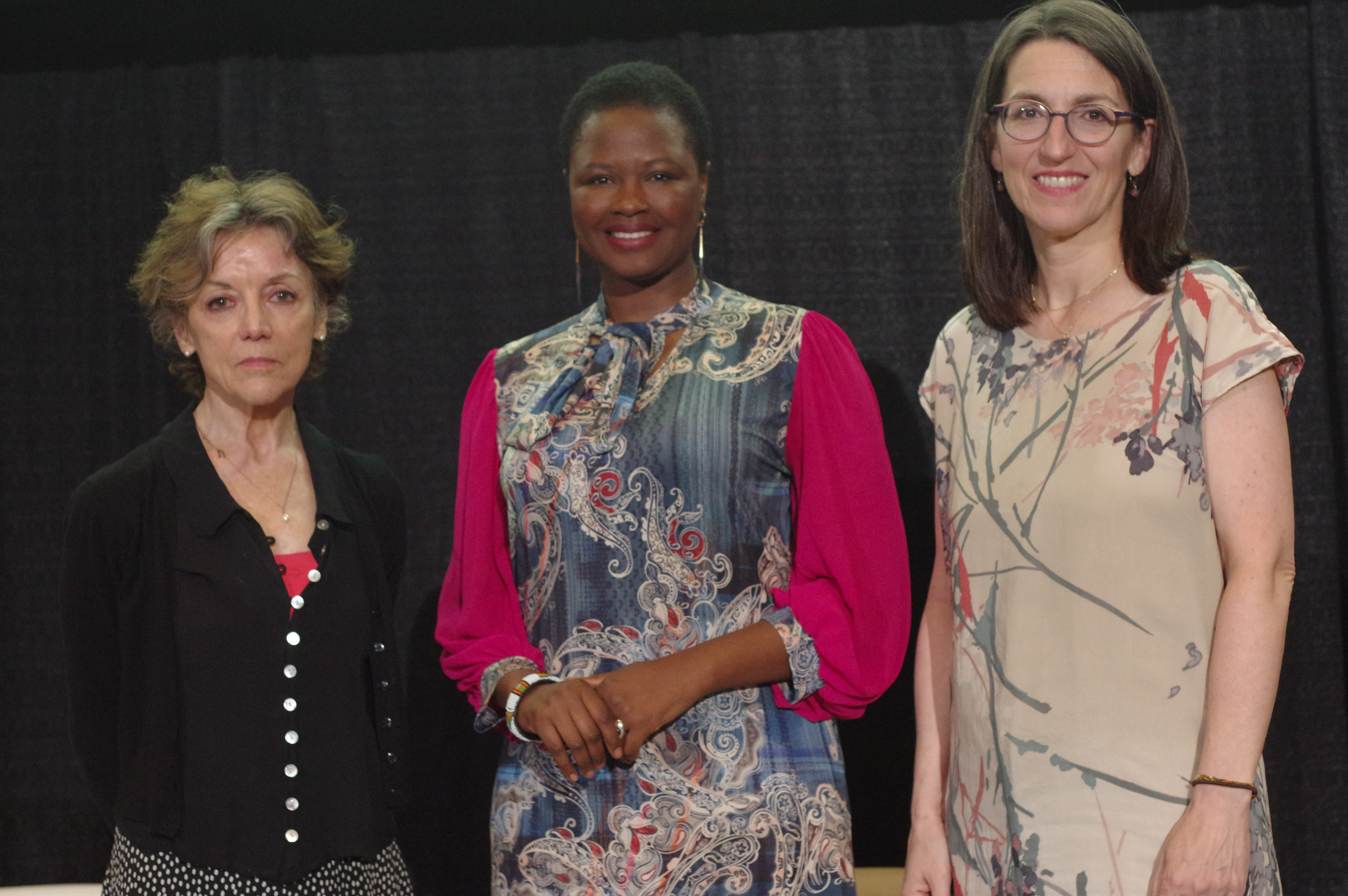
A new look at American history
The lecture by Ned Blackhawk, author of The Rediscovery of America: Native Peoples and the Deconstruction of American History, shed valuable light on the crucial but often overlooked role of Native Americans in the construction of the United States. This groundbreaking book seeks to re-examine the classic narratives of American history, focusing on the perspectives and contributions of Native peoples.
"As a student, Native history was extremely 'white' to me. Thus, I made the decision to teach history." According to Blackhawk, this was the source of his desire to rectify the whitewashed narratives of historical education. His book, which covers the period from the colonization of America to World War II, offers a thorough and subtle assessment of the impact of Native Americans on American history.
A highlight of the conference was the presentation of a map, the first of its kind, showing contemporary Native American tribes, including those not officially recognized. This visualization highlighted persistent difficulties in this field, such as the long-standing practice of excluding indigenous peoples from university studies.
Blackhawk also explored the economic and cultural changes of the late 1800s, explaining how indigenous peoples were seen as earlier forms of American identity at the Chicago Columbian Exposition in 1893. In this exhibition, Native Americans were presented as an opposition to American civilization, reinforcing prejudicial stereotypes. Blackhawk shared a chilling description of the era, quoting from his book, "They know no morals and live, simply, in filth."
The Indian New Deal was also discussed at the conference, a series of reforms in the 1930s and 1940s that were of vital importance after Roosevelt's election. Key figures in these efforts were John Collier, Felix Cohen and Henry Roe Cloud. According to Blackhawk, these reforms were compared to earlier, harsher approaches to education and native land rights.
Oneida activist Laura Cornelius Kellogg also came to the fore. Kellogg has traveled extensively, fought for land rights and established communities with the aim of reclaiming land from indigenous peoples. His work, along with that of other Native leaders, is a testament to Native American resistance and organization in the face of systemic oppression.
In conclusion, Blackhawk emphasized the importance of training Indian children in their cultural environment and preparing youth to face the challenges of their communities. For him, the problem lies in the system, not in race. The Rediscovery of America calls for a profound transformation in the way American history is taught, supporting a better understanding of the intertwined destinies of native and non-native peoples. This book is not simply a rewriting of history; it is a recontextualization essential to rectifying centuries of omission and misrepresentation.
For enthusiasts of American history, this book is an essential reference, transforming our perception of the past and its lasting consequences on the present. Purchase your own copy at the link below.
Photography courtesy of Shawn Ayyadi Pilon
